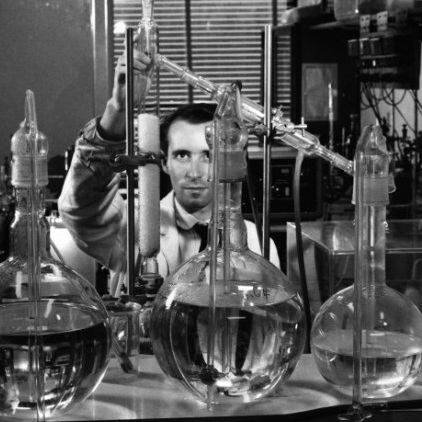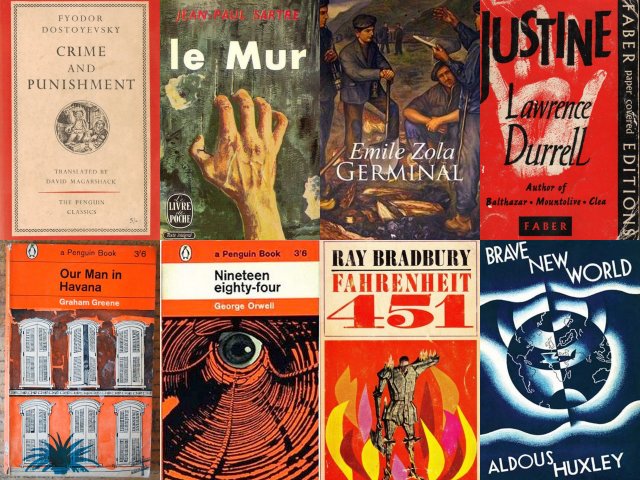Scientific method

Chelsea College in the early 1960s.
At Chelsea College I became a scientist, white coat and all. Doing experiments rather than watching them as we had done in school. As pharmacists we had to know a lot – botany, anatomy, chemistry, biochemistry, pharmacology, neuroscience. Even physics; the science behind making a medicinal tablet is astonishing. Just imagine; each tablet has to have an exact measured dose, bulked up with an inert substance, compressed so that it remains firm, and uncontaminated. All that for an aspirin.
It was odd therefore that one of our first practical sessions was to learn how to make pills in the nineteenth-century manner. A pointless exercise, even for historical reasons. The main requirement for success was sweaty palms. Thank goodness for tablet manufacture.

Dope under the ‘scope.
Botany meant studying plants under a microscope, not just to identify them but to assess their medicinal worth. Perhaps it was a sign of the times but the sample I had to investigate was marijuana. A very small sample it was; you don’t need much for a microscope slide.

Studying anatomy made me feel like a doctor although learning lists of bones, muscles and so on was never my forte. I did at least learn how all my internal organs fitted together. And I could dream of wierd voyages amongst the Islets of Langerhans, through the Sphincter of Pylorus to the lacunae of Morgagni, passing the Zonule of Zinn.
I found biochemistry fascinating. My pin-up poster was of the Krebs Cycle[1] with its circular process of chemical changes showing how all organisms release stored energy through oxidation of chemicals derived from carbohydrates, fats and proteins. And all done within each cell of the body.
Pharmacology, the study of how substances act on cells, organs or the whole organism, was central to my studies. Such experiments could not always be done in a test tube. Sometimes we had to use living creatures (go to the next paragraphs if you might find the details upsetting). To demonstrate how drugs can act on the body, we would be given live frogs prepared by a technician who had a special skill in scrambling their brains by inserting a needle in the back of their heads. The live but brain-dead creature would then be given shots of nicotine to stimulate its muscles; the poor thing could be made to jump at will.

Titration in action.
As it turned out I had a special skill in quantitative analysis in chemistry. The equipment was relatively simple – burettes, pipettes, conical flasks, very accurate chemical balances. But it needed a steady hand and accurate observation and recording. I could work out the composition of a chemical solution using titration or distillation. Fifty years later I would have no idea what that means. My supervisor suggested that, even in my first year, I should consider doing research or even a PhD.
But I had other diversions.
[1] Krebs won a Nobel prize for it.








